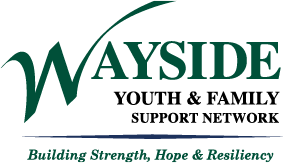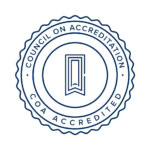Framingham Patch – OUT MetroWest Still Supporting LGBTQ+ Youth During Coronavirus

This article originally appeared in the Framingham Patch on April 14, 2020
By Neal McNamara
FRAMINGHAM, MA — The group OUT MetroWest wants LGBTQ+ youth in the region to know that there’s still help available during the coronavirus outbreak. The nonprofit has set up video conferencing meetups to replace usual in-person meetings.
Here’s more from an OUT MetroWest press release:
As awareness of the novel coronavirus began to spread, local nonprofit organization OUT MetroWest made a game-time decision to move its programs online.
“It was March 11, and it was clear that we couldn’t meet in-person much longer. Over the course of the day, we got calls from several families concerned about sending their kids to our middle school meeting that night. So we grabbed a laptop, broadcast that evening’s meeting via Zoom, and went fully remote the next day,” recalls OUT MetroWest program manager Kay Gordon.
OUT MetroWest, which is headquartered in Framingham, specializes in supporting lesbian, gay, bisexual, transgender, and queer (LGBTQ) youth. The nonprofit organization’s usual schedule involves hosting more than a dozen in-person meetings each month. Programs are offered free of charge and allow LGBTQ youth to gather with each other and with supportive adult facilitators.
“For many youth, our meetings are the only place they can be fully themselves. Some of them have parents who frown upon their sexual orientation. Others are transgender youth trying out new pronouns or a new name for the first name. LGBTQ youth are at increased risk of depression, anxiety, and suicide. Having access to an affirming space like ours can make all the difference,” says Gordon.
This protective effect is the reason OUT MetroWest staff were quick to adapt to the new physical distancing requirements. “Halting programs was never an option,” says Donna Tambascio, OUT MetroWest board chair. “These youth count on each other and on us, and we’re determined to foster safe, supportive connections, even when it feels like safety and connection are in short supply.”
Thanks to video conferencing software, the organization is hosting three regularly scheduled virtual meetings each week for youth in grades six through 12. Adult facilitators, who are also members of the LGBTQ community, guide the meetings, which include check-in conversations, resource sharing, and activities like Show and Tell and virtual games. At many of the meetings, a clinician from Wayside Youth & Family Support Network is available for youth in need of mental health services. Attendance at the online sessions is strong, with between ten and twenty youth logging in for each.
“Our meetings are always important, but this pandemic has created a new sense of urgency,” says Gordon. “Too many LGBTQ youth are isolating at home with unsupportive families or families to whom they’re afraid to come out. They’ve lost their typical access to teachers, guidance counselors, and classmates. With our online meetings, these youth can grab a set of headphones and log in from their bedrooms. They have a couple of hours each week to be around people who understand what they’re going through, and those hours can be a lifesaver.”
For more information about OUT MetroWest and its virtual meetings, see www.outmetrowest.org or follow their Facebook and Instagram accounts, @outmetrowest.

